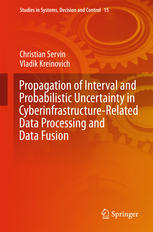

Most ebook files are in PDF format, so you can easily read them using various software such as Foxit Reader or directly on the Google Chrome browser.
Some ebook files are released by publishers in other formats such as .awz, .mobi, .epub, .fb2, etc. You may need to install specific software to read these formats on mobile/PC, such as Calibre.
Please read the tutorial at this link: https://ebookbell.com/faq
We offer FREE conversion to the popular formats you request; however, this may take some time. Therefore, right after payment, please email us, and we will try to provide the service as quickly as possible.
For some exceptional file formats or broken links (if any), please refrain from opening any disputes. Instead, email us first, and we will try to assist within a maximum of 6 hours.
EbookBell Team

4.4
92 reviewsOn various examples ranging from geosciences to environmental sciences, this
book explains how to generate an adequate description of uncertainty, how to justify
semiheuristic algorithms for processing uncertainty, and how to make these algorithms
more computationally efficient. It explains in what sense the existing approach to
uncertainty as a combination of random and systematic components is only an
approximation, presents a more adequate three-component model with an additional
periodic error component, and explains how uncertainty propagation techniques can
be extended to this model. The book provides a justification for a practically efficient
heuristic technique (based on fuzzy decision-making). It explains how the computational
complexity of uncertainty processing can be reduced. The book also shows how to
take into account that in real life, the information about uncertainty is often only
partially known, and, on several practical examples, explains how to extract the missing
information about uncertainty from the available data.